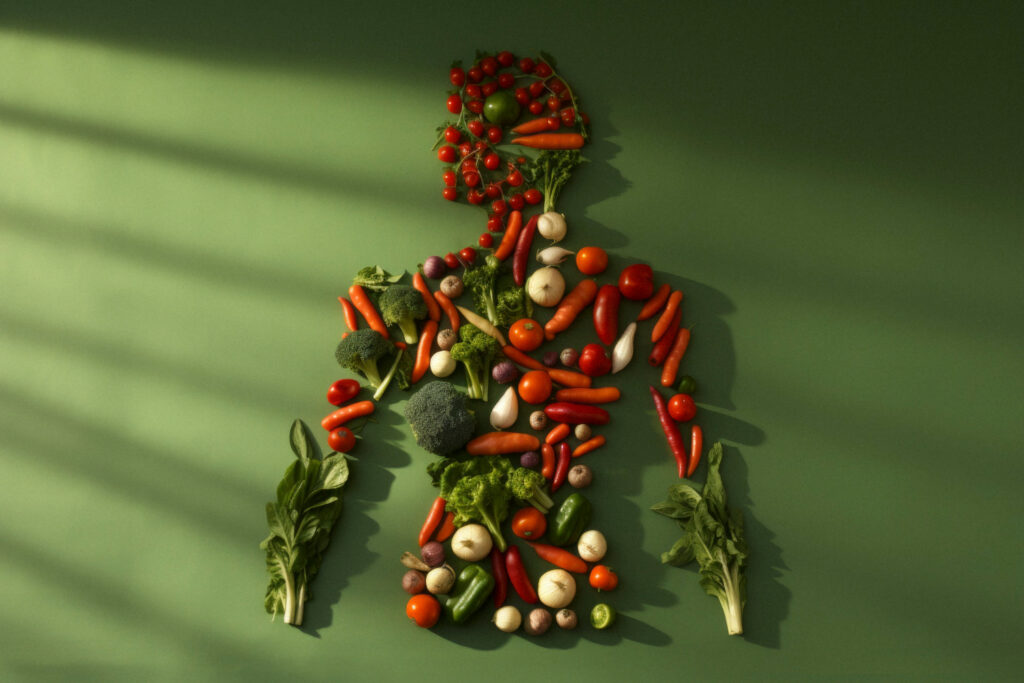Do you find yourself hitting that afternoon slump? Coffee mug permanently attached to your hand? Weekend plans consistently derailed by fatigue? You’re not alone. In today’s high-pressure world, many men are running on empty, with diet choices that might be secretly sabotaging their energy levels.
The good news? What you put on your plate has tremendous power to transform how you feel throughout the day. This isn’t about restrictive diets or complicated meal plans—it’s about making strategic food choices that align with your body’s needs as a man.
The Energy Crisis: Why So Many Men Are Running on Empty
Before diving into solutions, let’s talk about what’s happening behind the scenes. The modern lifestyle creates the perfect storm for energy depletion:
- Stress levels are through the roof – causing increased cortisol that affects everything from sleep quality to nutrient absorption
- Constant digital connection – disrupting natural rhythms and recovery periods
- Declining nutrient density in foods – even when trying to eat well, you might not be getting what you need
- Skipped meals and convenience eating – leading to blood sugar rollercoasters that drain your energy reserves
The result? Millions of men relying on caffeine, sugar, and sheer willpower to make it through the day. But there’s a better way.
Nutritional Needs: What Makes Men Different
Men’s bodies have specific nutritional requirements that differ from women’s in several key ways:
- Higher caloric needs – The average active man needs approximately 2,400-3,000 calories daily
- More protein requirements – To maintain muscle mass and support recovery
- Different hormone balance – Requiring specific nutrients to optimize testosterone production
- Higher iron needs – Essential for energy production and oxygen transport
Understanding these differences is crucial for making food choices that truly support male physiology rather than working against it.
The Power Players: Foods That Fuel Male Energy
1. Protein Foundations
Protein isn’t just for bodybuilders—it’s essential for every man’s energy levels, muscle maintenance, and satiety. Focus on:
- Lean meats – Chicken, turkey, and lean cuts of beef provide complete proteins with all essential amino acids
- Fatty fish – Salmon, mackerel, and sardines offer protein plus omega-3 fatty acids that support brain function and reduce inflammation
- Plant proteins – Lentils, chickpeas, black beans, and tempeh provide sustainable energy without the heaviness some men experience after eating meat
- Eggs – Nature’s multivitamin contains high-quality protein and choline, which supports brain health and energy
Pro tip: Distribute protein intake throughout the day rather than loading up at dinner for more stable energy levels.
2. Strategic Carbs
Carbohydrates aren’t the enemy—they’re fuel. The trick is choosing the right ones at the right times:
- Sweet potatoes – Provide steady energy release with additional benefits from vitamin A and potassium
- Steel-cut oats – Offer sustainable morning energy plus beta-glucans that support heart health
- Quinoa – Contains complete protein alongside complex carbohydrates
- Fresh fruits – Berries, apples, and citrus fruits provide quick energy with fiber to moderate blood sugar impact
Timing matters: Consider heavier carb portions earlier in the day or around workouts when your body can best utilize them for energy rather than storage.
3. Functional Fats
Healthy fats are critical for hormone production, brain function, and sustained energy:
- Avocados – Packed with monounsaturated fats that support testosterone levels
- Nuts and seeds – Walnuts, almonds, flaxseeds, and chia seeds provide essential fatty acids and micronutrients
- Olive oil – Contains polyphenols and monounsaturated fats that support heart health and reduce inflammation
- Grass-fed butter or ghee (in moderation) – Provides conjugated linoleic acid and fat-soluble vitamins
Fat insight: Most men benefit from including moderate amounts of healthy fats at each meal to support hormone production and provide lasting energy.
4. Micronutrient Powerhouses
These foods deliver concentrated nutrients that specifically address male energy needs:
- Dark leafy greens – Spinach, kale, and collards provide magnesium, iron, and folate to support energy production
- Pumpkin seeds – Offer zinc, which is crucial for testosterone production and immune function
- Brazil nuts – Just two provide your daily selenium needs, supporting thyroid function and energy metabolism
- Beets – Naturally boost nitric oxide production, improving blood flow and energy
- Mushrooms – Provide B vitamins and adaptogenic compounds that help the body manage stress
The Energy-Draining Foods to Minimize
Just as important as what to eat is what to avoid or limit:
- Processed foods high in refined flours – Trigger blood sugar spikes and crashes
- Alcohol – Disrupts sleep quality and depletes B vitamins needed for energy
- Excessive caffeine – While moderate amounts can boost performance, too much disrupts natural energy cycles
- Added sugars – Create energy rollercoasters and inflammation that drains vitality over time
Building Your Energy-Optimized Eating Plan
Creating a sustainable approach means developing habits that work with your lifestyle:
Meal Timing Strategies
- Consider intermittent fasting – Many men find 16:8 fasting (eating within an 8-hour window) improves energy and mental clarity
- Never skip breakfast – A protein-rich morning meal sets your metabolic tone for the day
- Space meals 3-4 hours apart – Allows for proper digestion and stable blood sugar
- Hydrate between meals – Often fatigue is simply dehydration in disguise
Sample Day: Energy-Optimized Eating
Morning:
- Steel-cut oatmeal with walnuts, blueberries, and a scoop of protein powder
- OR Veggie omelet with avocado and side of fresh fruit
Mid-Morning:
- Handful of mixed nuts and an apple
Lunch:
- Large salad with grilled chicken, chickpeas, olive oil dressing, and quinoa
- OR Grain bowl with black beans, sweet potato, leafy greens, and tahini sauce
Afternoon:
- Greek yogurt with berries and pumpkin seeds
- OR Smoothie with spinach, banana, almond butter, and protein
Dinner:
- Baked salmon with roasted vegetables and brown rice
- OR Grass-fed beef stir fry with plenty of colorful vegetables and minimal sauce
Evening (optional):
- Chamomile tea and a small square of dark chocolate
Smart Supplementation
While food should be your primary source of nutrition, these supplements may help fill gaps in the modern diet:
- Vitamin D3 – Especially important for men with limited sun exposure
- Magnesium – Supports energy production, muscle function, and stress management
- B-complex vitamins – Essential for converting food into energy
- Omega-3 fatty acids – If fatty fish consumption is limited
Always consult with a healthcare provider before starting any supplement regimen.
Real-World Implementation: Making It Sustainable
The best nutrition plan is the one you’ll actually follow. These practical tips can help make energy-optimized eating realistic:
- Batch cook energy-supporting foods – Prep proteins and complex carbs on weekends
- Keep emergency snacks on hand – Nuts, jerky, fruit, and protein bars can prevent energy crashes
- Make breakfast non-negotiable – Even if it’s just a protein shake with added healthy fats
- Create environmental triggers – Keep a water bottle visible, store healthy snacks at eye level
- Plan for stress eating – Have protein-rich, satisfaction-focused alternatives ready for high-pressure days
Beyond Food: Other Factors Affecting Male Energy
While nutrition is foundational, these factors work synergistically with diet:
- Sleep quality – No nutrition plan can overcome chronic sleep deprivation
- Stress management – Chronic stress depletes vital nutrients faster and disrupts digestion
- Physical activity – Regular exercise improves nutrient partitioning and energy utilization
- Connection – Social bonds and purpose significantly impact energy levels and food choices
The Long Game: Nutrition Through the Decades
Energy needs evolve as men age:
20s-30s:
- Focus on building habits that support recovery from high activity
- Emphasize foods that support muscle building and maintenance
40s-50s:
- Adjust portions as metabolism naturally slows
- Increase anti-inflammatory foods to support joint health and recovery
- Pay special attention to heart-healthy food choices
60s and beyond:
- Emphasize protein to prevent age-related muscle loss
- Include foods rich in antioxidants to support brain health
- Consider digestive support through fermented foods and fiber
Moving Forward: Your Personal Energy Prescription
The path to consistent, sustainable energy isn’t found in energy drinks or quick fixes—it’s built meal by meal, day by day. Consider starting with these action steps:
- Track your current energy patterns for one week, noting when you feel most energized and most depleted
- Implement one change at a time, starting with adding protein to breakfast
- Experiment with meal timing to find what works for your body and schedule
- Gradually crowd out energy-draining foods by adding more nutrient-dense alternatives
Remember that your nutritional needs are unique. Pay attention to how different foods affect your personal energy levels, mental clarity, and overall well-being.
Food as Fuel for Your Best Life
The connection between what you eat and how you feel isn’t just about weight or appearance—it’s about showing up to your life with the energy and vitality to make the most of every day. By making strategic food choices that support your male physiology, you’re investing in sustainable energy that powers everything from your work performance to your relationships.
Energy isn’t just about making it through the day—it’s about thriving in every area of life. And it starts with what’s on your plate.

Disclaimer: This article is for informational purposes only and does not constitute medical advice. The dietary suggestions provided are general recommendations and may not be appropriate for everyone. Individual nutritional needs vary based on age, activity level, health status, and other factors. Always consult with a healthcare provider before making significant changes to your diet, especially if you have existing health conditions or concerns.



